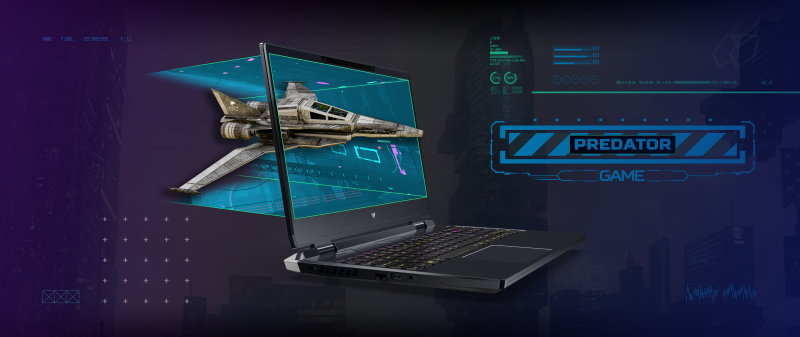
The spec list for Acer’s new high-end gaming laptop appears to have everything you’re likely to want from a portable gaming powerhouse.
Insane Nvidia GeForce RTX 3080 graphics card? Check. Intel’s beefy 12th Gen Core i9 processor? Check. HDMI 2.1, 32GB of RAM, and Thunderbolt 4? Triple check. Oh, and a 15.6in 4K screen with… *checks notes*… glasses-free 3D?! What is this, the mid-2000s?
Having been burned by more 3D gimmicks in the past than we’d care to admit, we forgive you for sharing our skepticism. But having read up on Acer’s tech solution, our Skeptometer (working title) is now officially set to Tentatively Optimistic.
That’s because there’s a lot of fancy technical wizardry going, courtesy of the company’s SpatialLabs tech. For starters, there’s a liquid crystal lenticular lens optically bonded to the aforementioned 4K panel. As a result, you can toggle between 2D and 3D at the touch of a button. But how does it actually work?
The secret lies in the wonders of Stereoscopic 3D, which sees two very similar (but not quite identical) images beamed to your eyes at the same time, with each eye seeing just one of the two images, thanks to the magical refraction skills of the lenticular lens layer. Combined with a stereo camera with two image sensors to track the position of your eyes and head, the 3D effect should remain even when you’re moving your head and eyes around. It can’t work complete miracles though — it’ll only work on one person directly in front of the laptop at any one time.

Still, it opens up a world of design and gaming possibilities. If you’re a 3D artist, work with CAD models, or a keen 3D printing enthusiast, then the ability to see your creations in three dimensions is a tantalising prospect. Gaming too, could be more immersive than ever, and Acer states that over 50 popular games (TBC) will be supported at launch, with plans for new games to be added as time goes on.
Obviously this will all take quite a bit of computational and rendering power to work effectively, hence the bleeding edge-specs courtesy of Intel and Nvidia’s hardware, and there’s a hefty price to match — the Predator Helios 300 will cost a cool €3299 when it lands this September, with UK pricing yet to be confirmed.






